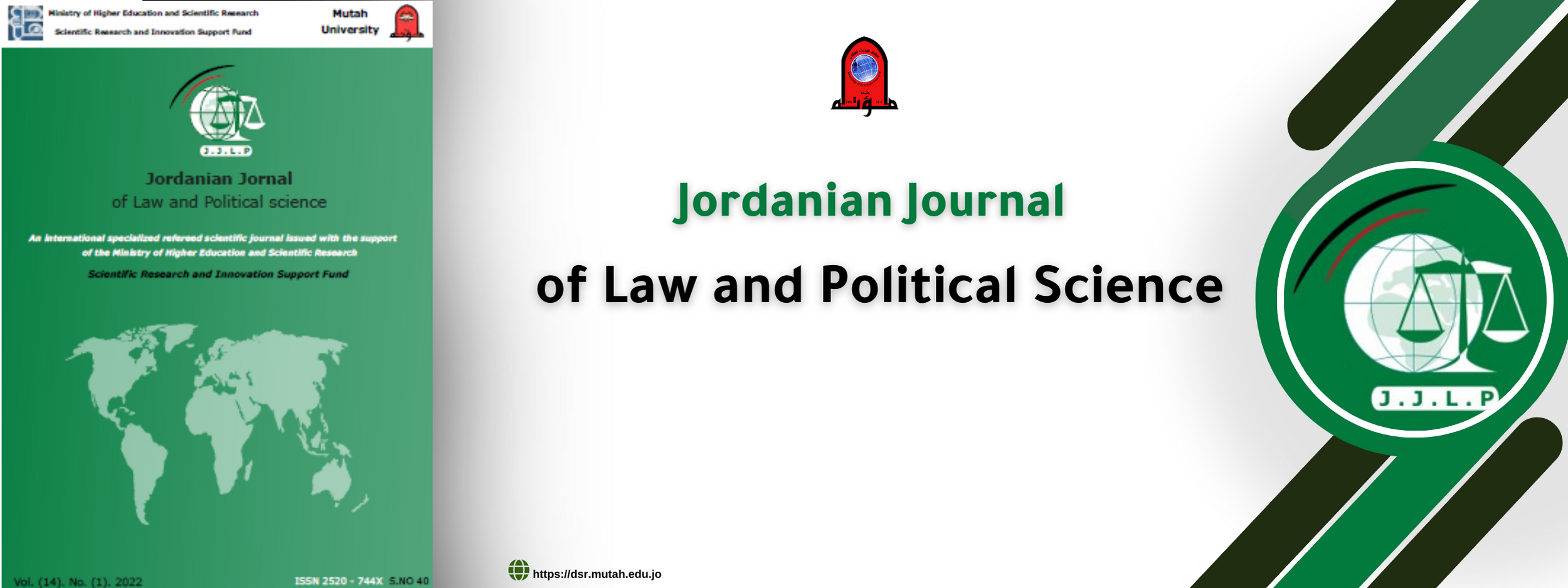Procedural Nullity according to the Jordanian Civil Procedure law
DOI:
https://doi.org/10.35682/jjlps.v16i3.859Keywords:
Nullity, Procedural Nullity, Public Interest, Private Interest, Correction of NullityAbstract
During the consideration of a lawsuit, nullity may be raised due to some procedural defects, whether substantive, like the nullity of the subject matter, or formal, like the invalidity of challenging procedures such as the lapse of the period for exchanging memoranda, or violation of legal provisions. For example, non-compliance with a text despite its explicit prohibition. Nullity may either be for public benefit or private interest. The law also provides for the rectification of nullity, either by renouncing it for the benefit of whom it was established or by completing the procedural action, for example. This study aims to illustrate procedural nullity, its instances, and how it is rectified. The researcher employs descriptive and analytical methods by analysing and describing legal texts related to the study's subject to reach the desired conclusions. The researcher arrives at several findings along with a number of recommendations. Among the most important findings was the Jordanian legislator's amalgamation of several theories governing procedural nullity, including the principle of no nullity without harm, even if a fundamental defect is present and the theory of no nullity without text, and the theory of correcting and completing nullity. The study recommends granting the court-wide authority to limit cases of procedural nullity and to remedy judgments for any formal reason, even if it is minor. This can be done by achieving a balance between justice and safeguarding it.







